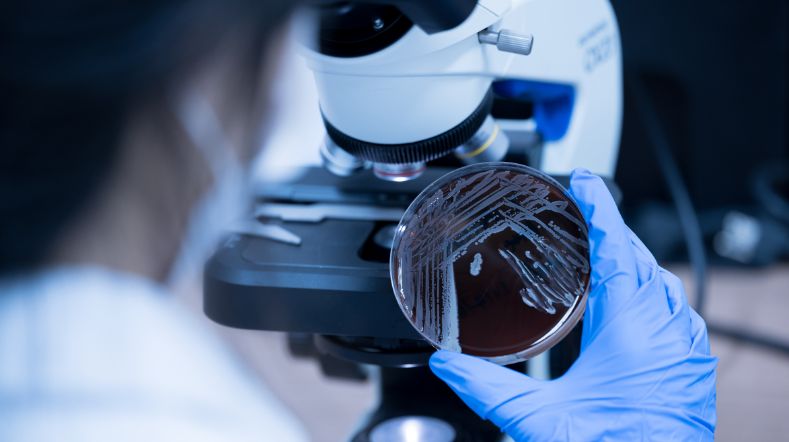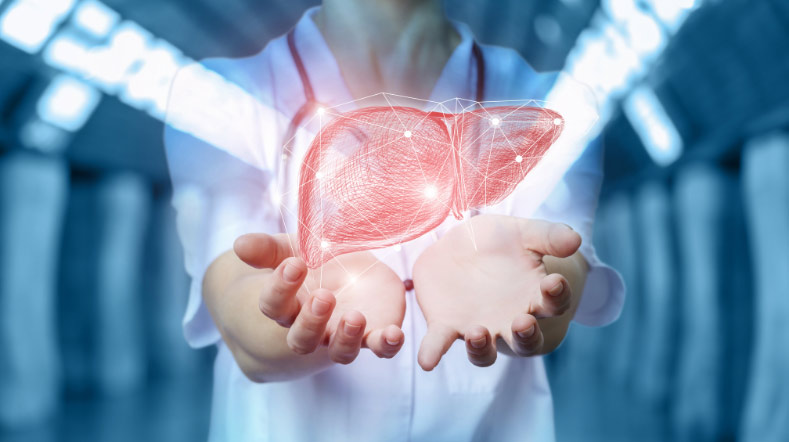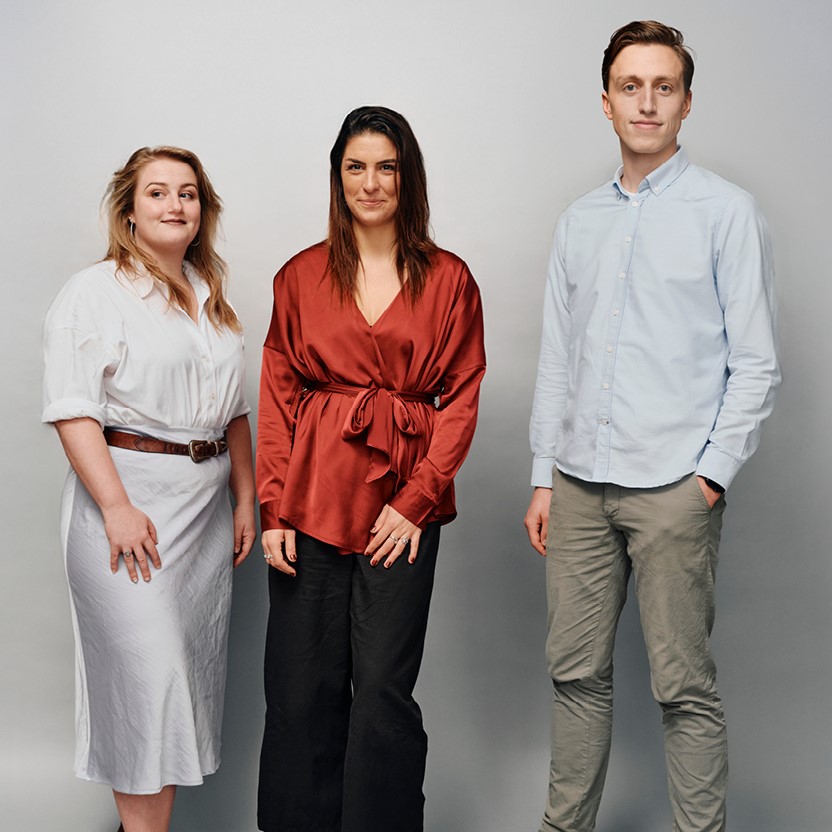
A healthy lifestyle as the best medicine
Lifestyle diseases, such as type 2 diabetes and cardiovascular disease, are rapidly on the rise. So rapidly, in fact, that Suzan Wopereis, Principal Scientist at TNO, fears that the healthcare system will become overburdened. The tide must be turned. One way to achieve this is through personalised health advice, which could halve the number of people with lifestyle diseases by 2030.
In 2023, we live six years longer on average than in the 1980s. That would seem to be good news. However, when zooming in on the underlying figures, it’s obvious that we’re not getting any healthier. ‘These days, chronic diseases are already developing in people in their 40s – 15 to 20 years earlier than a few decades ago,’ Suzan Wopereis says. At TNO, she researches how lifestyle diseases can be prevented or even reversed.
According to Wopereis, lifestyle diseases such as obesity, type 2 diabetes, cardiovascular disease and stress-related illnesses are increasingly common. ‘We sit for longer, move less, sleep worse and eat less healthily. If we don’t make any changes, the healthcare system will eventually be deluged by a tidal wave of unwell people.’

“We sit longer, move less, sleep worse and eat less healthily. If we don’t make any changes, the healthcare system will eventually be deluged by a tidal wave of unwell people.”
Reversal of disease processes
TNO is keen to initiate this transition in order to get ahead of that tidal wave that is crippling the care sector. The research institute has therefore formulated an ambition to halve the number of people with lifestyle diseases in our country – not somewhere far in the future, but as early as 2030. The cure as far as TNO is concerned? Lifestyle changes.
Wopereis: ‘Just look at a common lifestyle disease like type 2 diabetes. For a long time, this was seen as a progressive disease. We now know that timely and sustainable lifestyle changes can slow down and even reverse the disease process. The same applies to cardiovascular disease. Changing your lifestyle requires behavioural change, which is incredibly difficult to maintain. If you back it up with technology, however, many things are possible.’
For example, TNO is working on technology that will make the diagnosis of type 2 diabetes increasingly detailed. As it turns out, not every type 2 diabetic is the same. Wopereis: ‘The same disease can have a variety of biological causes. If you know right from the start what the cause is in your case, you can adjust your lifestyle changes and possibly your drug treatment accordingly. This will allow for a lifestyle intervention that really works.’
360-degree diagnosis
What is unique to this view on personalised healthcare, is that TNO links biomedical techniques to patients' backgrounds, circumstances and preferences. ‘By not only measuring someone's glucose level for example, but also using questionnaires to identify their personal context, much more targeted care can be provided,’ Wopereis explains. ‘What is their socio-economic background, what motivates them, are they willing to work on themselves individually or would they rather work in a group?‘
TNO has translated this 360-degree diagnosis into a digital tool for lifestyle coaches. ‘A traffic light system lets a coach see at a glance how someone is doing based on their lifestyle. They can then set targets together with their patient and monitor whether those targets are achieved,‘ Wopereis explains.
‘Among the patients who took part in our first pilot was a diabetic of little financial means. Thanks to the layered diagnosis, the healthcare provider was able to make arrangements with the local food bank, so that the patient now receives a weekly shopping basket with the right healthy products.’

“Thanks to the 3D food printing machine, patients coming out of the ICU can be offered a customised diet enriched with micro- and macronutrients to help them recover better and faster.”
Wearables and apps
Making the invisible visible is an important first step in personalised healthcare, says Wopereis. ‘Wearables and apps can show you that your behaviour affects your health. For example, your glucose level drops when you exercise and rises when you’re stressed. Making people aware of the consequences of their behaviour in this way helps with motivation.’
TNO is currently working on smart wearables that incorporate highly advanced technology – so advanced that Wopereis can’t say much about it yet. However, she does talk enthusiastically about another promising innovation: the 3D food printing machine. ‘Thanks to this machine, patients coming out of the ICU can be offered a customised diet enriched with micro- and macronutrients to help them recover better and faster.’
Moonshot
Let’s get back to the 2030 ambition to halve the number of people with lifestyle diseases. Suzan Wopereis: ‘Think of it as a “moonshot“ to underline the urgency. As with the climate crisis, we really need to act now. If we don’t there’s the risk of the whole healthcare system collapsing.’
At the same time, much has already been achieved. Together with LUMC and the Diabetes Fund, TNO has founded Lifestyle4Health. Wopereis: ‘With this initiative, we want to give lifestyle medicine a prominent place in medical research, training and treatment’, Wopereis says. ‘All teaching hospitals in the Netherlands are now affiliated, as are many private partners, including pharmaceutical companies such as Novo Nordisk and Roche and 270 lifestyle pharmacists.’
The initiative is now also supported by the government. The Ministry of Health, Welfare and Sport has allocated 300 million euros to implementing lifestyle interventions in the Dutch healthcare system by 2025. Wopereis speaks of a unique transformation. ‘This public-private partnership is unique in the world. When it comes to tackling lifestyle diseases, the Netherlands is really leading the way.’
Lifestyle in a jar
According to Wopereis, the fact hat pharmaceutical companies and pharmacists are also supporting the lifestyle approach is both hopeful and sensible. ‘Increasingly often, pharmaceutical companies and pharmacists see their drugs end up with groups they’re not initially intended for. One of the examples is GLP-1 agonists that people use to lose weight easily. With personalised lifestyle therapy, these people can have a healthier life without expensive drugs.’
That said, Wopereis does see opportunities for ‘lifestyle in a jar’: lifestyle advice as a supplement to medication. ‘Think of it as a digital prescription, where patients can see in an app which lifestyle and diet optimise the drug’s effect.’ In turn, the use of apps and wearables can provide pharmaceutical companies with valuable information that contributes to faster and more efficient drug development in a real-life setting.
Finally, Wopereis believes drugs could and should become more personalised as well. ‘Finding the “magic bullet” is becoming increasingly difficult for pharmaceutical companies and pharmacists. By introducing technology that enables personalised healthcare, they can also offer drugs that no longer follow the traditional one-size-fits-all principle. It’s high time for more innovation in the pharmaceutical industry.’
The number of lifestyle pharmacists continues to rise
The Netherlands now has more than 300 certified lifestyle pharmacists. These are pharmacists that also consider lifestyle an important ‘cure’. For example, they help people who take part in a combined lifestyle intervention (CLI) taper off their medication properly. The initiators of the lifestyle pharmacy phenomenon found inspiration in TNO research, which showed that type 2 diabetes patients benefited more from a healthier lifestyle than from insulin. Suzan Wopereis: ‘Once 700 lifestyle pharmacists have joined, this transition in healthcare will be irreversible.’
Get inspired
Microbial safety and hygiene


Women's health


Early metabolic health


Functional biomarkers


TNO discovers new method to diagnose liver disease



